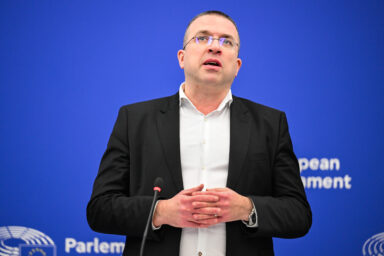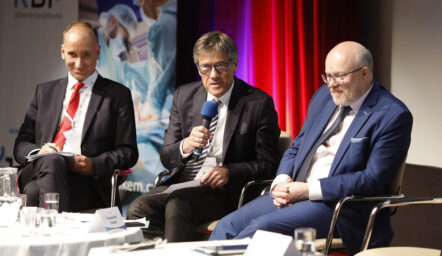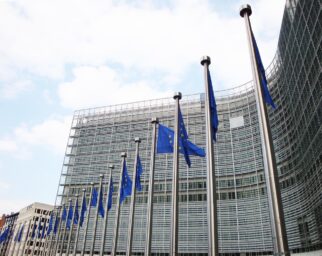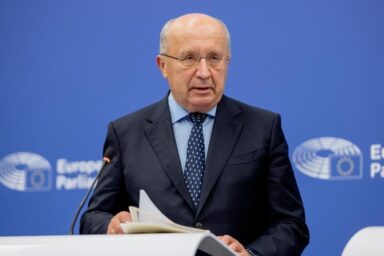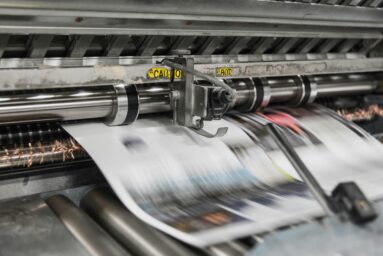The priorities of sustaining green economic goals as well as the livelihoods of French Occitanie winemakers prompt the EU executive arm to ditch some of the bloc’s competition standards.
The European Commission has for the first time endorsed a sustainability agreement exempt from standard antitrust rules, permitting organic and eco-certified wine producers in France’s Occitanie region to coordinate indicative prices for bulk sales. The decision, issued on Tuesday, 15 June under a 2021 regulatory carveout, aims to stabilise a sector where sustainable vintners risk abandoning eco-friendly practices due to financial strain.
We enable an initiative incentivising wine producers in Occitanie to keep producing sustainably under the two prevalent sustainability labels, which they may not otherwise do in current market conditions. — Teresa Ribera, EC Executive Vice-President for Clean, Just and Competitive Transition
Producers of organic or Haute Valeur Environnementale (HVE)-certified wines — a French sustainability label — sought approval to set annual “orientation prices” with buyers. These non-binding benchmarks, calculated to cover production costs plus a 20 per cent profit margin, target six grape varieties. The goal is to prevent farmers from reverting to conventional methods or exiting the market entirely, as inflation and oversupply erode profitability.
Why rules were bent
The Commission assessed the pact (under Article 210a of the EU’s Common Agricultural Policy, or CAP), which exempts agricultural sustainability agreements from standard competition bans if they pursue environmental goals beyond legal requirements and impose only “indispensable” restrictions. Officials concluded the price guidance met these conditions, calling it critical to preserve organic and HVE output.
Ordinarily, price coordination between competitors breaches EU antitrust law. But the Occitanie wine sector’s struggles — driven by low consumer awareness of sustainability costs and buyer resistance to premium pricing — forced a pragmatic compromise. With sustainable producers less profitable than conventional peers, the Commission accepted that indicative pricing was the sole way to incentivise eco-friendly practices.
Teresa Ribera, Commission Vice-President, framed the decision as a strategic shift: “Today, we issued a first positive opinion under the special competition rules for sustainability agreements in agriculture. By this, we enable an initiative incentivising wine producers in Occitanie to keep producing sustainably under the two prevalent sustainability labels, which they may not otherwise do in current market conditions.”
You might be interested
Walking the antitrust tightrope
The ruling offers immediate relief to Occitanie’s vintners, providing price transparency to justify higher costs. For the EU, it sets a template to reconcile competition policy with environmental aims. Agriculture commissioner Christophe Hansen stressed the precedent’s significance: “This initiative shows that sustainability and economic viability can go hand in hand. I encourage producers in other sectors and regions to explore similar collaborative solutions that benefit both farmers and the future of food production in Europe.”
The deal aligns with the EU’s Farm to Fork strategy, which targets a 25 per cent share of organic farmland by 2030. By allowing collective action, officials hope to stem the decline in sustainable practices — organic wine production in France fell 4 per cent last year amid price pressures.
I encourage producers in other sectors and regions to explore similar collaborative solutions. – Christophe Hansen, EU Commissioner for Agriculture and Food
Critics warn indicative prices could distort markets. Even non-binding benchmarks may nudge buyers toward uniform pricing, critics argue, disadvantaging smaller producers who lack certification resources. HVE accreditation costs remain steep for many, though the Commission insists the pact’s two-year limit and focus on “higher-than-mandated” standards mitigate abuse risks.
Who comes next?
Commissioner Hansen, however, emphasised safeguards: “By enabling such collective sustainability agreements, we are giving French wine producers the legal certainty they need to cooperate and to continue investing in more sustainable practices.”
The Commission’s approval, issued within four months of the March 2025 request, reflects streamlined Article 210a procedures. Officials urge other sectors to follow suit, with Ms Ribera noting, “We hope that others will follow with their own sustainability initiatives.”
For now, the focus is on Occitanie. If the pact stabilises sustainable production without stifling competition, similar deals for dairy, livestock, or cereals could emerge. If not, the EU’s experiment in “green collusion” may ferment regulatory hangovers.


